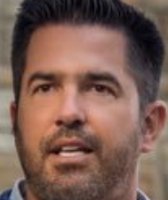Stand up for the facts!
Our only agenda is to publish the truth so you can be an informed participant in democracy.
We need your help.
I would like to contribute
Republican presidential candidates sparred over immigration during the 2015 primary debates, and in recent months, they linked that topic to terrorism. Florida Sen. Marco Rubio and Kentucky Sen. Rand Paul went back and forth over the issues in a Las Vegas debate on Dec. 15.
Paul accused Rubio of being soft on immigration, and hence soft on terrorism.
"The thing is, is that every terrorist attack we've had since 9/11 has been legal immigration. Marco wants to expand that," Paul said. "I want more rules, more scrutiny. And to defend the country, you have to defend the border."
Paul’s point, his staff said, was that the terrorist attacks caused by immigrants were carried out by people who came here legally.
Paul’s phrasing about the citizenship status of terrorists was confusing, so we decided not to rate it on our Truth-O-Meter. But we did want to look at the facts about the citizenship of terrorists who’ve attacked since Sept. 11, 2001.
We looked at three different databases to find information on the citizenship status of terrorists: the New America Foundation, Ohio State University and University of Maryland’s Global Terrorism database.
It’s definitely wrong to state that all terrorist attacks were committed by immigrants, because there have been several notable attacks carried out by U.S. citizens.
Also, there is no simple way to summarize the citizenship status of terrorists, because it depends on how we define terrorism and what sort of incidents we include. Some terror attacks seem to be inspired by jihadist beliefs like those related to the Islamic State (called ISIS) or al-Qaida. Other attacks seem to motivated by racism or fear of government authority.
We’ll start with summaries of seven recent high-profile attacks. (Three involved some type of legal immigration, and four did not.) Then we’ll see what experts had to say about overall trends in domestic attacks.
San Bernardino, Calif.
Syed Rizwan Farook, a U.S. citizen, and his wife, Tashfeen Malik, a permanent resident, were killed by police after they killed 14 people on Dec. 2 in San Bernardino, Calif. It was the deadliest terrorist attack on American soil since Sept. 11.
Farook’s parents emigrated from Pakistan to Chicago. Farook was born in the United States in 1987 and was raised in California. He brought Malik to the United States on a fiancee visa in 2014 from Saudi Arabia, where she had moved from her native Pakistan.
Chattanooga
Mohammad Youssef Abdulazeez shot and killed five people at two military sites Chattanooga on July 16, 2015, and was later killed by police. FBI director James Cobey said the shooter was inspired by foreign terrorist propaganda.
Abdulazeez was born in Kuwait but moved with his family to the United States as an infant, and he became a naturalized citizen.
Charleston, S.C.
Dylann Storm Roof was charged with killing nine people on June 17, 2015, in an African-American Charleston church. Roof wore white supremacist symbols and was charged with hate crimes, not terrorism charges. But when announcing the indictment, U.S. Attorney General Loretta Lynch said, "Racially motivated violence such as this is the original domesticated terrorism."
Roof was born in South Carolina and was a U.S. citizen.
Las Vegas
Jerad and Amanda Miller ambushed two police officers eating at a restaurant and attacked a nearby Walmart in Las Vegas, Nev., on June 8, 2014. Two officers, a bystander, and the assailants were killed. On social media, the assailants decried the federal government, taxes and anti-gun laws.
They were both born in the United States and were citizens.
Boston Marathon
Brothers Tamerlan and Dzhokhar Tsarnaev were the assailants in the Boston Marathon attacks where two explosive devices detonated on April 15, 2013, killing three spectators and injuring more than 260 people. A police officer was killed during the manhunt, which also led to the death of Tamerlan. In May, a federal jury sentenced Dzhokhar to death.
The brothers immigrated to the United States as children after their parents fled Chechnya. They arrived in the United States on tourist visas, and then their family applied for asylum. Dzhokhar became a U.S. citizen on Sept. 11, 2012, while Tamerlan had a green card and had applied for citizenship.
Milwaukee area
Wade Michael Page, a member of a white supremacist organization, attacked a Sikh temple on Aug. 5, 2012, near Milwaukee. Six people were killed and four others wounded before Page was shot by a police officer and subsequently died from a self-inflicted gunshot wound.
Page was born in Colorado and was a U.S. citizen.
Fort Hood, Texas
Army Major Nidal Malik Hasan, a psychiatrist, shot and killed 13 people on Nov. 5, 2009, at a military site in Fort Hood, Texas. He later said the shooting was justified because the soldiers he killed were "going against the Islamic Empire." Before the attack, he had sent messages to a cleric who had been described as a leader for al-Qaida in the Arabian Peninsula. (The administration initially labeled that shooting workplace violence ,but President Barack Obama later called it terrorism.)
Hasan was of Palestinian descent, but he was born in Virginia and was a U.S. citizen.
Terror databases and trends
There is considerable debate about how to define terrorism. Some attacks stem from jihadist beliefs related to al-Qaida, others seem to stem from complaints about the American political system.
"When it comes to terrorism, no broad sentence such as ‘all terrorists are … ’ will ever really work," said Neil Shortland, a professor at the Center for Terrorism and Security Studies at the University of Massachusetts. " ‘Terrorism’ as a behavior is too diverse; and those who do it are equally diverse."
Right-wing terrorism comprises a large portion of terrorism in the United States, and it tends to be committed by Americans, said Daveed Gartenstein-Ross, senior fellow at the Foundation for Defense of Democracies.
"Of those, the vast majority don’t have a relationship to the immigration system," he said.
The New America Foundation, a Washington think tank that promotes data-driven research for social and economic policy, did an analysis of "homegrown extremism" since 2000. The foundation compiled data on 499 extremists, who either adhered to jihadist ideology inspired by al-Qaida or were motivated by right- or left-wing political beliefs. This database includes attacks as well as those accused of terrorism-related offenses, such as plotting attacks or fundraising.
New America found that about 64 percent of the extremists were U.S.-born citizens and 80 percent were either American-born or naturalized citizens. The database shows eight out of 499 extremists were illegal residents; all eight were jihadists.
A New York Times analysis cited by many experts we interviewed found that half of the jihadist attacks since 2001 were committed by men born in the United States. Many others were naturalized citizens. Some were noncitizens but were traveling legally, such as Richard Reid, the attempted shoe bomber in Miami in 2001, who didn’t need a visa because he was from Britain.
Overall, databases of terrorist acts in the United States show that many were committed by Americans or naturalized citizens, though some high-profile incidents have involved legal immigrants.
"Empirically, domestic terrorism is carried out by citizens -- not immigrants -- with right-wing terrorism, racial hate crimes, and the sovereign-citizen movement making up a majority of domestic terrorist incidents," said Joel Day, assistant professor of security and global studies at the University of Massachusetts Lowell. "Other domestic incidents have indeed been carried out by those who came here through legal channels.’’
Our Sources
U.S. Sen. Rand Paul, Press release, Dec. 3, 2015
University of Maryland, Global Terrorism Database and subset of 33 in the U.S., Accessed Dec. 16, 2015
New America Foundation, "Homegrown extremism 2000-2015," Accessed Dec. 16, 2015
Ohio State University Professor John Mueller, Terrorism since 9/11 the American cases, April 2015
Politico, Wrongometer, Dec. 15, 2015
International Business Times, "Terrorism attacks since 9/11 have involved U.S. Citizens, not immigrants, despite GOP debate claim," Dec. 16, 2015
New York Times, "The Origins of Jihadist-Inspired attackers in the U.S.," Nov. 25, 2015
New York Times, "Dylann Roof’s past reveals trouble at home and school," July 16, 2015
New York Times, "Robert Dear, Suspect in Colorado Killings, ‘Preferred to Be Left Alone,’" Nov. 28, 2015
New York Times, "At Fort Hood, wrestling with label of terrorism," April 8, 2014
Washington Post, "Chattanooga gunman came from a middle-class Muslim family," July 16, 2015
CNN, "Fort Hood shooting jury recommends death penalty for Nidal Hasan," Aug. 29, 2013
CNS News, "Six years later: Obama finally calls Fort Hood a terrorist attack," Dec. 7, 2015
Snopes, "American Frag," Nov. 20, 2015
PunditFact, "Kohn: Since 9/11, right-wing extremists killed more Americans than Islamic extremists," Jan. 8, 2015
PunditFact, "Rep. Carson miscasts racial supremacists as greater threat than jihadists," Dec. 18, 2015
Cato Institute, "Terrorism in the American psyche," by Ohio State political scientist John Mueller and Mark G. Stewart, civil engineer and risk analyst at the University of Newcastle in Australia, December 2015
Milwaukee Journal-Sentinel, "Timeline: Wade Michael Page," 2012
Interview, Erin Miller, Program Manager, Global Terrorism Database National Consortium for the Study of Terrorism and Responses to Terrorism, University of Maryland, Dec. 16, 2015
Interview, Laura Dugan, University of Maryland Criminology and Criminal Justice professor, Dec. 16, 2015
Interview, David Sterman, New America Foundation senior program associate, Dec. 16, 2015
Interview, Matt Chisholm, U.S. Sen. Rand Paul campaign spokesman, Dec. 16, 2015
Interview, Daveed Gartenstein-Ross, senior fellow at the Foundation for Defense of Democracies, an adjunct assistant professor in Georgetown University's security, Dec. 16, 2015
Interview, Neil Shortland, a professor at the Center for Terrorism and Security Studies at the University of Massachusetts, Dec. 17, 2015
Interview, Joel Day, Assistant Professor of Security and Global Studies at the University of Massachusetts Lowell, Dec. 17, 2015
Interview, Don Wood, FBI spokesman, Dec. 17, 2015
































